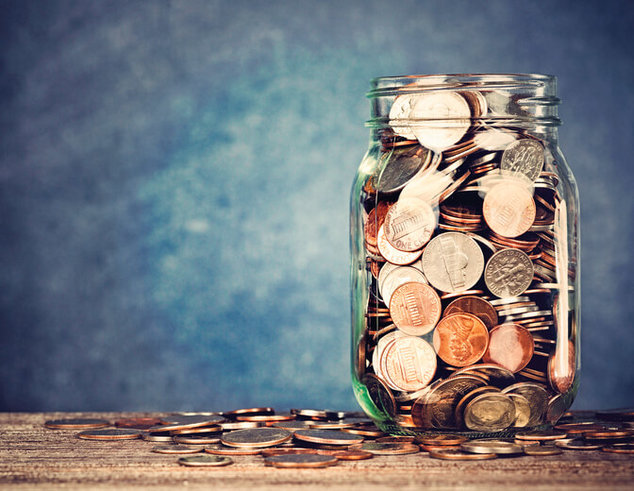Control impulse spending with the 30-day rule


I made a trip to Costco to buy business supplies last week. While browsing the software, I spotted the latest version of Quicken. I picked up the box and looked at the list of new features. I felt that urge creep upon me — the urge to spend. "Maybe the Mac version is out, too," I thought. "I should stop by Fry's to check."
Then I thought of the $50 it would cost to upgrade. I thought how Quicken 2004 has served me well for three years. I began to have doubts. "I'll use the 30-day rule," I told myself. "If I still want this next month, I'll buy it." Continue reading...
Survey: What does money mean to you?
Get Rich Slowly is the final entrant in JLP's Question-of-the-Day Marathon. There have been many thought-provoking questions over the past month; I hope you've had a chance to contribute at some of the participating sites. My question is:
What Does Money Mean to You?
When I was a boy, my family was poor. Money then meant necessities to me. It was the key to obtaining essentials, especially food and clothing. Sometimes it opened other doors, too: candy, comic books, movies. But mostly it was a means to obtain the things we needed to survive.
When I was a young adult, however, my attitude changed. My father had a successful business venture, so we had more money when I was in high school.  I went to a college where I was surrounded by kids from wealthy and successful families. I began to view money as the means whereby I could acquire the luxuries my peers seemed to already have. I acquired a lot of luxuries. I bought anything I wanted: books, computers, video games, gadgets, etc. I bought things even if I didn't have the money.
I went to a college where I was surrounded by kids from wealthy and successful families. I began to view money as the means whereby I could acquire the luxuries my peers seemed to already have. I acquired a lot of luxuries. I bought anything I wanted: books, computers, video games, gadgets, etc. I bought things even if I didn't have the money.
27 money tips for college students
School's back in session, and with it come life-lessons in money management for students. But personal finance can be easy, even if you're just starting out. You just have to know how it works. All of the following are concepts I wish I had known before heading to college.

Money Management
Now that you're on your own, you might be tempted to spend money on all the things your parents wouldn't let you have before. Go slow. If you play it smart, you can avoid the sort of money troubles that plague many young adults.
- Join a credit union. Don't just sign up for a random bank giving away t-shirts or frisbees at registration. Track down a credit union in town, or do some research into online banks.
- Don't get a credit card unless you absolutely need one. Don't be a sucker. Those guys sitting behind the sign-up table are not there to help you. They're there to make money.
- Avoid non-academic debt. It might seem like a good idea to put that Xbox on a credit card, but it's not. Focus on developing good money skills with cash. Worry about credit later.
- Save and then splurge. If you decide you must have that Xbox, then save for it. Wait until you can pay cash.
- Pay your bills on time. Basic advice, but it's surprising how many people lose track of things. If you pay your bills as they arrive, you won't have to worry about forgetting them.
Organization and Planning
Some minimal organization will keep your finances in order. Each of these is an important adult financial skill.
The Politics of Personal Finance
Thrift, frugality, and investing are pursuits that cross political, religious, and social boundaries. Regardless of your ideology, sound personal finance habits can help you live a better life.
There seem to be three distinct classes of personal finance books:
- Those with an overt religious-based foundation for thrift. Dave Ramsey bases the ideas in The Total Money Makeover on his Christian faith. Miserly Moms takes its cues from Christianity, too.
- Those espousing a "reactionary" back-to-the-earth philosophy. I'm currently reading Living Simply with Children, which is a great book, but clearly written from a more "liberal" perspective.
- Those that fall somewhere between, or which straddle both camps. This group comprises the bulk of personal finance books. Some, like Your Money or Your Life, manage to simultaneously promote Christian beliefs and a sort of "New Age" philosophy. Others studiously avoid any sort of dogma.
There's nothing wrong with any of these perspectives. They're all good. And they allow authors to bring new ideas and new techniques to the realm of personal finance. In Living Simply with Children, for example, Marie Sherlock talks about raising children with no concept of Christmas. But in Miserly Moms, the Joni McCoy argues that there's a Biblical basis for mothers staying home with their children.
The Only Credit Card Guide You’ll Ever Need
I don't like credit cards. They're a dangerous trap, especially for the young. Many smart people disagree with me, though, and have learned to use credit cards to their advantage. This guide provides solid credit card information so that you can make smart choices.
I've structured this as a series of questions and answers. There's sure to be a lot missing. Please let me know what else should be included here, and I'll add it. Let's start with the big question:
Where can I find the best credit card deals?
Low-interest credit cards
- Ongoing low-APR cards
- 0% introductory offer cards
- 0% balance transfer cards
Reward credit cards
- Cash-back cards
- Cards with rewards
- Travel and airline cards
- Gas cards
- Secured credit cards
- Unsecured credit cards
What should I be wary of when getting a credit card?
If you think you might need a new credit card, be sure to read Nine Things to Consider When Choosing a Credit Card. This short checklist is an excellent way to make sure you don't forget something important that can come back to burn you later. Also be wary of stupid credit card tricks.
Which financial records to keep (and how long to keep them)
An AskMetafilter user wonders how long to keep receipts:
I have been keeping all of my receipts for some time now. Every day, I enter them into my money tracking system (presently just a text file where I capture date, payee and amount). Then I file the receipts away in folders by month. My question: does it do me any good to save the receipts, or is having the data good enough? [...] I've never had to bring out individual receipts for tax purposes before, but my understanding is that if I got audited, having all my receipts would be very helpful. Is that true?
Bankrate has an excellent table summarizing how long to keep financial records. To summarize:
Trunk Clothes: A Sure Sign You Have a Spending Problem
I mentioned my little brother earlier because he was taught his son that two pairs of shoes equals one iPod. (Remember that they're moving, and his wife is packing sixty pairs of shoes.) He just called to chat. I told him I was busy, but he offered me another story and gave me permission to print it.
His wife used to work at Nordstrom. While there she took advantage of the employee discount. A lot. In fact, she spent over $10,000 on clothes during that period. (Meaning $20,000 retail price, I think.)
Even when the family didn't have any money, she'd come home with clothes. My brother would call her on it, but she'd deny that they clothes were new. "Come on," he'd say. "I know what's in your closet." One day he complained to her about the new clothes she was wearing, and she claimed they were old, when he pointed out that there was a price tag still dangling from whatever it was she was wearing.
Lessons About Money from the World of Warcraft
During late autumn and most of the winter, I live in another world. I join millions of others lost in Azeroth, the fictional universe for the computer game World of Warcraft. Believe it or not, one of the best lessons I've ever learned about money came from playing the game.
I was frustrated at never having enough gold to purchase the equipment I wanted, so on a whim I began to buy and sell goods at the in-game auction house. I was shocked at how much money I made. Normal gameplay might yield a few gold pieces per week, but I was able to make twenty or forty a week through arbitrage. And my character was fairly young! Over the course of a couple months, I was able to earn about 350 gold pieces, which is an amazing amount for a mid-level character.
And then I learned another lesson about researching investments when I spend all that money on a weapon of little value and a mad race to max out my Enchanting skills.
Lattes, iPods, and Masterworks: New Ways to Look at Money
My brother is selling his house. To get it ready for market, his family has been packing stuff in boxes. When it came time to pack his wife's shoes, the kids were amazed. She had sixty pairs of shoes. "How much did these cost?" my brother wondered. "Only about $75 each," his wife told him.
Their kids are still a little young to understand money, so my brother tried to translate this for his oldest son. The kid had just spent a couple weeks working, for which his grandfather paid him $20 per day. He saved his money and at the end of the two weeks, he bought an iPod. (Though what a seven-year-old kids wants with an iPod, I'll never know...)
"One way to look at it," my brother told him, "is that for every two pairs of shoes, you could have an iPod."
10 expert tips for saving on car insurance
My friend Lynn works for a major U.S. insurance company. I recently asked her for tips to help people save money on auto insurance. I expected maybe a few quick ideas, but she went above-and-beyond with the following detailed list. If you own a car, you should read these tips. For readability's sake, I haven't blockquoted this, but it's all Lynn.
Note that every insurance company is different — not all of these ideas work everywhere. The first thing you can do to save money on auto insurance is to self-insure as much as you can afford. Do this in the following ways:
- High deductibles. Everyone preaches this, yes, but it's usually the easiest way to cut costs. Usually. (If your car is over ten years old, the savings may be minimal.)
- Remove towing. Good maintenance and planning can save you money. Don't run out of gas. Don't lock your keys in your car. Make sure you have a spare and know how to change it. Sometimes your car will break down, but if your car is well-maintained, it won't happen often. You pay $10 - $30 a year over the life of your policy and one tow costs $100. Note that in the event of an accident, towing is almost always covered under collision.
- Remove car rental. Small economy cars cost about $20 - $25 per day to rent. Car rental is $20 - $40 per year. Play the odds. If you rent a car on vacation, your insurance will cover you while driving that car. Don't pay for the extra coverage. The only things it offers are:
- Zero deductibles. You go all year long with your deductibles, why change now? Also, if you pay for the car with a credit card, they may pay for any out of pocket in the even of an accident.
- Downtime coverage. Downtime means that while the rental car you wrecked is in the shop being repaired, it can't be rented out to other customers and they can ding you for the daily fee. This may be an issue if they can show that all other cars were rented out and they lost money because of you — Hawaii is notorious for charging this. But, again, it's a risk you might decide to self insure rather than pay $21 a day for the insurance.
Aside from self-insuring, there are other steps you can take to save on car insurance.